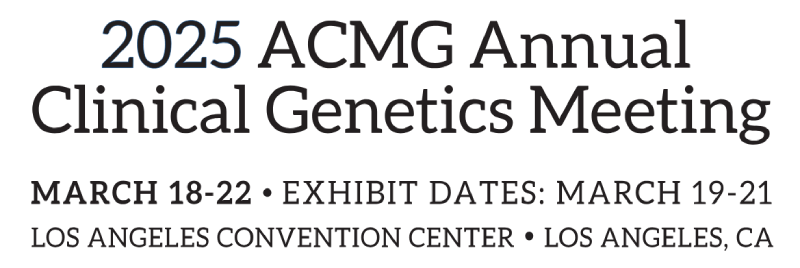Rare Disease Advisory Councils – State Advocacy for the Rare Disease Community
18 Mar 2025
Venue:
Los Angeles Convention Centre
Meeting Room:
408 B
ELSI Public Health and Policy
-
Accredited:
- Accredited
-
Primary Categories:
- Health Care Inequities and health disparities
-
Secondary Categories:
- Health Care Inequities and health disparities
The ACMG Committee for Advocacy and Government Affairs recognized the value of personal connection with members of Congress this last year through the Virtual Hill Day event. This event included training committee members for a visit with staff members representing offices from their respective congressional districts. Lessons learned from advocating for legislation at the federal level can be parlayed to action items at the state legislature level to support services for families with rare genetic conditions. With more than 10,000 rare diseases affecting 1 in 10 Americans, it is difficult for representatives in state governments to have an in-depth understanding of the unique challenges facing the rare disease community every day – from obtaining an accurate diagnosis to battling for fair insurance coverage of their treatment and care. The National Organization for Rare Disorders (NORD) recognized that advocacy at the state level could be accomplished through Project RDAC with a goal to establish a Rare Disease Advisory Council in every state. RDAC activities vary by state and are tailored to meet state and local needs. This workshop focuses on 3 states that have implemented NORD-supported Rare Disease Advisory Councils; New Hampshire, Minnesota, and Utah. The workshop will kick off with a presentation from a NORD representative outlining the vision that led to the organizational effort to develop RDACs in every state. The panelists from each RDAC will briefly present their respective structure and mission and then share 2 or 3 activities over the past year of how their RDAC supported lawmakers. After these opening comments, the moderator will ask the audience to access the NORD-RDAC website (https://rarediseases.org/rare-disease-advisory-councils/) to identify their state’s RDAC including the council membership and advocacy activities. The moderator will call out a state and ask a volunteer from that state to share what they learned about their state RDAC from the website. One or more of the panelists will respond to the comment(s) provided by the audience. The session will close with panel remarks on how ACMG members can initiate, join, and/or serve in their state RDAC followed by a closing statement from the NORD representative. Potential outcomes of this workshop are increased awareness of state advocacy efforts for the rare disease community, increased representation of genetics providers on RDACs, and ACMG member support to create an RDAC in states that have yet to establish one.
Sponsored by the Advocacy and Government Affairs Committee
Sponsored by the Advocacy and Government Affairs Committee
Learning Objectives
- Define the term RDAC
- Compare and contrast activvities from 3 state RDACs
- Identify if your state has an RDAC, and if so describe one activity of that RDAC in the last year
- Design an RDAC for your State
Agenda
-
 Introduction1:30 PM – 1:35 PM
Introduction1:30 PM – 1:35 PM -
 Project RDAC and NORD's Vision to Advocate for the Rare Disorders Community at the State Government Level1:35 PM – 1:57 PM
Project RDAC and NORD's Vision to Advocate for the Rare Disorders Community at the State Government Level1:35 PM – 1:57 PM -
 The New Hampshire RDAC1:57 PM – 2:19 PM
The New Hampshire RDAC1:57 PM – 2:19 PM -
 The Utah RDAC2:19 PM – 2:41 PM
The Utah RDAC2:19 PM – 2:41 PM -
 The Minnesota RDAC2:41 PM – 3:03 PM
The Minnesota RDAC2:41 PM – 3:03 PM -
Panel DiscussionPanel Discussion and Q&A3:03 PM – 3:30 PM
-




)
)
)
)
)
)
)
)
)
)
)
)
)
)
)
)
)
)
)
)